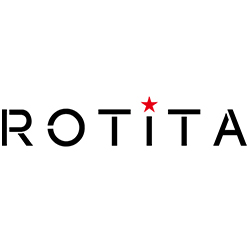A ray of sunshine on pandemic prospects from a surprising source: UCSF department of medicine chair Bob Wachter, who has been a consistent source of calm caution throughout the pandemic, published an unusually upbeat Twitter thread on Wednesday in which he shared his thoughts on “why we could be in good shape — and maybe even great shape — in 6-8 weeks.” Among the highlights of the 24-tweet screed: the current state of affairs is “awful” but signs are increasing that the highly infectious omicron variant may indeed be less virulent than earlier strains. Vaccines aren’t as effective at preventing mild cases but are staving off hospitalizations except among the unvaccinated, who are “sitting ducks.” Key therapies, including monoclonal antibodies and oral antivirals, hold great hope for immunocompromised people and others at risk of serious illness. By early February, Wachter concludes, “we could be in a place where COVID is, in fact, ‘like the flu’ — with the vast majority of the U.S. protected through vaccines or recent infections, folks at higher risk having ready access to an oral treatment that markedly lowers their risk, and a health care system no longer stressed to the point of perilousness.”
Holiday gatherings now account for 40% of new COVID cases: Sonoma County Health Officer Dr. Sundari Mase said today that among cases with a known source of infection, four in 10 have been traced to holiday gatherings. “Throughout the pandemic, we have seen cases spike around holidays as people gather to celebrate with loved ones,” Mase said. His comments came as Sonoma joined other Bay Area counties (see below) in reversing an exemption to the indoor mask mandate that had allowed known groups of vaccinated people to remain maskless in settings such as offices and gyms. The county also issued a set of guidelines to help protect people during New Year’s gatherings, such as keeping gatherings small and well ventilated and wearing high-quality masks.
S.F. officials back in-person learning after holidays, despite rising cases: The San Francisco Department of Public Health has encouraged students and staff to return to school following the winter holiday break, despite rising COVID-19 case numbers and the rapid emergence of the omicron variant. “San Francisco has remained vigilant and beat back four surges, and we are well positioned with a highly vaccinated population to do the same with this current surge due to Omicron,” said Dr. Grant Colfax, the director of the department. “Throughout the pandemic, San Francisco schools have remained low-risk settings by following proper safety protocols.” The department said the key to keeping schools open for in-person learning is getting vaccinated and boosted, testing after travel and gatherings, staying home when sick, and wearing well-fitted masks. “We must do everything possible to keep students safely attending schools,” said Dr. Susan Philip, San Francisco Health Officer. “The mental health impacts on students due to social isolation far outweigh the challenges of in-person learning.”
Latest state figures show record cases among vaccinated patients: A Wednesday update to California’s official COVID-19 dashboard shows noteworthy trends in the course of the virus, including a record rate of cases among vaccinated people. As of Dec. 19, the case rate among people who have received two Pfizer or Moderna doses or a single dose of the Johnson & Johnson-Janssen vaccine reached an all-time high for the state of 13.6 people per 100,000, while the 70.5 rate for the unvaccinated was more than five time greater — near its peak above 80 last August during the delta surge. The differential in outcomes was far worse: based on data through Dec. 12, unvaccinated people were 14.5 times more likely to be hospitalized, while as of Dec. 5 they were 15 times more likely to die. Only a miniscule number of vaccinated people end up in the hospital, some 1.7 per million Californians.
Bay Area counties say everyone must mask indoors, revoking earlier exemptions: Alameda County and the City of Berkeley said on Wednesday that even fully vaccinated people must wear masks in offices, gyms, religious facilities and other non-household indoor settings, rescinding earlier limited exemptions. The order, which takes effect at 12:01 a.m. Thursday morning, aligns Alameda with the California Department of Public Health’s masking policy. Marin County also announced similar rules on Wednesday, set to take effect overnight. “When we see numbers like this, it’s time to respond,” said Dr. Matt Willis, Marin County Public Health Officer. Contra Costa County had made the same move the day before.
San Francisco joins move to tighten indoor mask rules amid omicron surge: San Francisco officials also reinstated a mandate on Wednesday requiring people to wear masks in indoor settings — even if everyone in a given place is fully vaccinated. San Francisco’s seven-day average case rate as of a week ago was already 398, surpassing the peak average during the delta surge, city officials said. Mayor London Breed and S.F. Health Director Grant Colfax also said that the city will align other policies with state guidance, including requiring booster shots for workers in health care and other high-risk settings (as well as some settings not covered by the state) and a requirement that attendees and staff at indoor mega-events be up-to-date on COVID-19 vaccinations, including boosters if eligible, starting Feb. 1, 2022.
Sacramento Congresswoman tests positive in breakthrough case: Democrat Doris Mitsui, who represents California’s 6th Congressional District, based in and around Sacramento, said Wednesday that she has tested positive for COVID-19, despite being fully vaccinated and boosted, and is self-isolating. “I am only experiencing mild cold-like symptoms and am thankful for the protection provided by the vaccine,” Mitsui said in a statement. She has served the district since the 2005 death of her husband, longtime Congressman Robert Mitsui, whom she succeeded in a special election in March of that year.
FDA says rapid antigen tests may be less sensitive to omicron: Omicron may challenge the sensitivity of widely used but hard-to-find home test kits — meaning their ability to correctly identify positive cases early — the U.S. Food and Drug Administration said Tuesday. Michael Mina, a testing expert and former epidemiology professor at Harvard, explained in a Twitter thread that because omicron is more contagious compared to previous variants, its infectiousness levels will be higher for an amount of virus that may be too small to detect on the first try. Mina said the problem applied to PCR tests too. “It’s important for people to understand that ALL tests will falter on day 1. If you feel symptoms, regardless of the test type — ASSUME YOU ARE POSITIVE,” he wrote. Tests should work on subsequent days as viral loads increase — which is why it’s important for people to repeat the antigen tests, which come in packs of two, after at least one day’s interval.
Stanford elaborates back-to-school policies for January: The university had already told students earlier this month that the first two weeks of the winter quarter would be conducted remotely to delay their return to campus. In a letter sent Wednesday, Dean of Students Mona Hicks and Dr. Jim Jacobs, the executive director of Vaden Health Services, clarified steps for the student body’s return: Classes start Jan. 3 online and in person on Jan. 18. Students are required to get tested for the coronavirus before coming back to school (and must stay home for 10 days if they test positive) and they must get a booster shot by Jan. 31. Other rules concerning dining, assembly and travel have also been spelled out.
California becomes first state to report 5 million coronavirus cases: The California Department of Public Health’s COVID-19 dashboard reported the new record on Tuesday after a holiday weekend delay, reports the AP. The first coronavirus case in California was confirmed Jan. 25, 2020. It took 292 days to get to 1 million infections on Nov. 11 of that year, and 44 days from then to top 2 million. The new record wasn’t unexpected in a state of 40 million people poised for a surge in new infections amid holiday parties and family gatherings forced indoors by winter storms. Still, California’s case total is well ahead of the 4.4 million cases reported in Texas and 3.9 million in Florida since the pandemic began.
More Bay Area arts organizations cancel New Year’s events: Citing concerns over the rapidly spreading omicron variant, a growing number of theaters and music venues have announced cancelations of planned shows and performances on and around New Year’s Eve, including Theatre Rhinoceros, the Oasis and the Great American Music Hall in San Francisco and Oakland’s Elbo Room. Other organizations planning to stage new events in early 2022 say they are monitoring the coronvirus surge and weighing their options.
U.S. sets new record high for coronavirus infections: Driven by the spread of the omicron variant, the United States set a new record for coronavirus infections, according to separate national trackers maintained by the New York Times and the Washington Post. The trackers reported slightly different figures for average infections over a seven-day period, but both recorded more infections than the nation’s previous high of around 250,000 reported cases, set in January.
What the new CDC quarantine guidelines mean for each Bay Area county: Most Bay Area counties have followed California’s and the CDC’s guidelines on COVID policies over the course of the pandemic. But only a few have confirmed they’ll follow the revised policies so far. Read the full story here.
S.F. mayor cancels New Year’s fireworks: San Francisco Mayor London Breed and city public safety officials said the New Year’s Eve fireworks celebration would be canceled amid rising COVID-19 cases, particularly among front-line workers. Read the full story here.
Here are the latest numbers as omicron cases skyrocket in California: California recorded a massive jump in coronavirus cases over the long holiday weekend, including an average of roughly 3,400 cases a day from Christmas Eve through Monday in the Bay Area — numbers far outpacing the summer surge as the omicron variant continues its takeover. Read the full story here.
Big leap in Bay Area’s daily new cases: Data reported Tuesday shows the Bay Area’s coronavirus case numbers jumping significantly just in the past few days as the omicron variant takes hold. The 7-day average of new daily cases was at 38 per 100,000 population on Tuesday, according to The Chronicle’s tracker based on numbers reported to the state. That’s up from just under 24 for the 7-day average reported on Friday, ahead of the holiday weekend.
California positive test rate way up: The rate of positive COVID-19 tests lept significantly over the holiday weekend, California health officials reported Tuesday. The positivity rate — the percent of coronavirus tests that come back positive — averaged 9.7% over the past seven days, the state health department said. That’s far higher than the 3% reported just one week ago. And since both figures are weekly averages, the daily rate is undoubtedly much higher due to the omicron variant’s ubiquity.
CDC downgrades estimate of omicron prevalence in the U.S.: The omicron variant made up about 59% of all cases in the United States last week, according to new estimates released by the Centers for Disease Control and Prevention on Tuesday. The CDC also sharply downgraded its estimate for omicron prevalence the week before, from about 73% to 23%. Delta still makes up about 41% of all cases, the CDC said.


